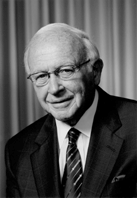By: Richard King
In September 2008, China will host the single largest international event that the country has ever undertaken, the 2008 Summer Olympics in Beijing. To do this, they are transforming Beijing into a world class city at the estimated cost of $40 billion U.S. dollars. This expenditure will provide the city with a new central park, a greatly expanded mass rapid transit system, improved environmental control systems, improved infrastructure, hotel and entertainment facilities and restored historic landmarks. China will also spend $3.5 billion dollars on “digitalizing” Beijing, including new information technology and networks of fiber-optic cable.
To accommodate the hundreds of thousands of Olympic game visitors, Beijing is increasing its number of hotels to more than 800 which means 130,000 rooms. They anticipate a dramatic growth in tourism and convention business for the years following the Olympics.
The Olympics will attract huge amounts of investments from international corporations in China and provide marketing and branding opportunities for foreign firms. Tim Statford, VP of General Motors, China operations, says the first Olympics to be held in China will provide an opportunity to market a brand to hundreds of millions of Chinese. Companies that are already in China, will benefit greatly such as, McDonalds, KFC, Kodak, G.E., Xerox, and Walmart. Many of them already have marketing rights and will be advertising sponsors.
The infrastructure challenges to ready Beijing for the Olympics are staggering: roads, power and utility, hospitals, hotels, transportation systems, fiber optics, digitalization, etc. Engineering and construction firms from all over the world have converged on China to participate in this task. U.S. companies like Bechtel, Fluor and Parsons are involved as well as many Asia engineering firms who have worked on Olympics held in Australia, Korea and Japan. Architectural firms from Asia, Europe and North America also have the opportunity to design Olympic sports facilities, hotels, parks and restoration of historic sites. Local California firms like Altoon & Porter and Gensler have been involved along with major Japanese, Australian, Korean, and European firms.
The entertainment and media industry located in California has been involved in Olympic events management and media coordination. The major networks, NBC, CBS, ABC, Fox, etc, are involved along with independent consultants with creative expertise in events management.
Cross cultural considerations also permeate the Olympics. Many US language training schools have received contracts to teach English to service industry people in Beijing, such as taxi drivers, policemen, hotel employees, hospital workers, etc., not only teaching English language but western customs and mores.
Indeed, the Beijing Olympics will be an event of global dimensions and will have a significant impact on how the rest of the world perceives China. China’s leaders have challenges to cope with to assure that Beijing Olympics achieves its potential. Among these are maintaining an acceptable environment, particularly air quality; alleviating the snarling traffic problem and providing the water, power and gas supply the city will need to support the Olympics.

The population of Beijing will benefit from the Olympics for when the games are over, its people will have parks, sports and recreational facilities, and housing complexes which can establish Beijing as a host for a variety of national athletic competitions.
The Beijing Olympics of 2008 is probably the event of the decade and can position China as a highly respected member of the global community. Companies throughout the world, including California, will be “gold medal’ winners in teaming up to make this a memorable event.
Richard King,
Chairman Emeritus /Trustee, Woodbury University
Chairman/Founder King International Group
626-792-4729

|